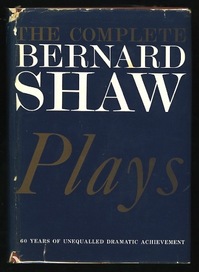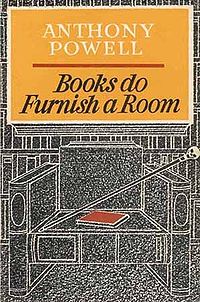
Not my office, but very close.
When I get a little money I buy books; and if any is left I buy food and clothes. – Erasmus
One afternoon in Cape Town I sat in my little room at University House and took inventory. This must have been in June, winter in the southern hemisphere, and it had been raining steadily for most of a week. I was virtually alone in the student residence; the others had packed off for vacation. With an umbrella and plastic slicker I’d ventured out once or twice to the Pig and Whistle, where I favored the Ploughman’s Lunch, but to sustain life I’d laid in a supply of tinned sardines, cheddar and swiss cheese, Hob Nobs, apples, Carr’s Water Biscuits, ginger cookies, Hershey bars, biltong, sausage and a pot of jam. I had a little electric coil that would bring a cup of water to a boil, a jar of Nescafe, a box of sugar and some Instant Postum.
I wrote in my journal: “I have not spoken to anyone since Monday. The radio is playing ‘Downtown’ by Petula Clerk. I’ve been reading some Shaw — Man and Superman. I’m wearing jeans, my cable knit sweater and my Keds. I’ve made coffee and am waiting for it to cool. Let it be recorded that at this moment I am happy.”
University House was a two-sided row of rooms opening from common sidewalks. It had been built for troops during the war, and now housed graduate students. The water poured down the roof and collected in an exposed gutter which hurried it along somewhere downhill. I have long had this peculiar love of sitting very close to the rain and yet remaining protected–in a cafe, on a porch, next to a window, or there in that room, which had two iron-paned windows and a Dutch door. After a warning from our house mother, I’d gone to the OK Bazaar and purchased a small electric heater.

“What do I really need that isn’t here in this room?” I asked. “Its dimensions are a little more than twice as wide and deep as I am tall. I don’t know, maybe 150 square feet? Here I have the padded wood chair in which I sit tilted against the wall, my feet braced on my straight desk chair. I am holding the three-inch-thick Paul Hamlyn edition of Shaw’s complete plays. This room contains: A wood single bed, an African blanket covering it, a wood desk and its gooseneck lamp, a small dresser with a mirror over it, my portable typewriter, a small wardrobe containing my clothes, a steamer trunk serving as a coffee table, and two bookcases, filled to overflowing. What more do I actually need?”
To this inventory I would today add: A rice cooker, knife and cutting board, to prepare my meals; a small refrigerator; and a MacBook and nice speakers to supply the internet, music, videos and TV. There wasn’t room for a proper TV.
Chaz and I have lived for 20 years in a commodious Chicago house with three floors, a furnished basement apartment and an exercise room we built on the roof-top deck. This house is not empty. To my 1965 edition of Shaw, which cost me about two quid and now sells for $119, Chaz and I have added, I dunno, maybe 3,000 or 4,000 books, countless videos and CDs, lots of art, rows of photographs, rooms full of comfortable furniture, a Buddha from Thailand, two elephants from India, African chairs and statues, and who knows what else.

Of course I cannot do without a single one of these possessions, including more or else every book I have owned since I was seven, starting with Huckleberry Finn. I still have all the Penrod books, and every time I look at them, I’m reminded of Tarkington’s inventory of the contents of Penrod’s pants pockets. After reading it a third time, I jammed my pockets with a pocket knife, a Yo-Yo, marbles, a compass, a stapler, an oddly-shaped rock, a hardball, a ball of rubber bands and three jawbreakers. These, in an ostensible search for a nickel, I emptied out on the counter of Harry Rusk’s grocery, so that Harry Rusk could see that I was a Real Boy.
My books are a subject of much discussion. They pour from shelves onto tables, chairs and the floor, and Chaz observes that I haven’t read many of them and I never will. You just never know. One day I may — need is the word I use — to read Finnegans Wake, the Icelandic sagas, Churchill’s history of the Second World War, the complete Tintin in French, 47 novels by Simenon, and By Love Possessed. That 1957 best-seller by James Could Cozzens was eviscerated in a famous essay by Dwight Macdonald, who read through that year’s list of fiction best sellers and surfaced with a scowl. It and the other books on the list have been rendered obsolete, so that his essay is cruelly dated. But I remember reading the novel late into the night when I was 14, stirring restlessly with the desire to be possessed by love.
I cannot throw out these books. Some are protected because I have personally turned all their pages and read every word; they’re like little shrines to my past hours. Perhaps half were new when they came to my life, but most are used, and I remember where I found every one. The set of Kipling at the Book Nook on Green Street in Champaign. The scandalous The English Governess in a shady book store on the Left Bank in 1965 (Obilisk Press, $2, today $91). The Shaw plays from Cranford’s on Long Street in Cape Town, where Irving Freeman claimed he had a million books; it may not have been a figure of speech. Like an alcoholic trying to walk past a bar, you should see me trying to walk past a used book store.
Other books I can’t throw away because–well, they’re books, and you can’t throw away a book, can you? Not even a cookbook from which we have prepared even a single recipe, for it is a meal preserved and happy time then shared, in printed form. The very sight of Quick and Easy Chinese Cooking by Kenneth H. C. Lo quickens my pulse. Its pages are stained by broth, sherry, soy sauce and chicken fat, and so thoroughly did I master it that I once sought out Ken Lo’s Memories of China on Ebury street in London and laid eyes on the great man himself, dining alone in a little room near the entrance. A book like that, you’re not gonna throw away.

Hob Nobs, plain and chocolate
I can’t throw out anything. Perhaps I foresaw that when I wrote my journal entry. I possibly don’t require half the shirts I have ever owned. But look at this faded Chamois Cloth Shirt from L. L. Bean, purchased through the mail in about 1973 from a two-inch ad in the back of The New Yorker: The longer you wear it, the more it feels like chamois! I’ve been wearing it a long, long time. I can’t say it feels like chamois, never having worn chamois. But I want to work on it some more.
I also need this tea mug from Keats House in Hampstead, even though its handle is broken off. I need it to hold these ball-point pens I had printed with the words, No good movie is too long. No bad movie is short enough. They were 100 for $39, I think. The ink has all dried up over the years, but I still need need them in order to provide a purpose for the mug.
And here are my thick reference books. Not only the Shorter Oxford English Dictionary, but the small tiny-type edition of the complete OED, which came with its own magnifying glass. And Bartlett’s Familiar Quotations, the Cambridge Companion to English Literature, the 1967 edition of Halliwell’s Filmgoer’s Companion, a hardbound London A to Z from 1975, and two dozen books on the occult, including the Tarot, the I Ching and The Autobiography of Aleister Crowley, who was a certified flywheel, but surely wrote one of the best of Edwardian autobiographies (Crowley explained that he invented modern British mountain climbing in the Himilayas after his predecessors “had themselves carried up by Sherpas”).

In idle hours I like to leaf through my well-worn leather-bound 1970 edition of Brewer’s Dictionary of Phrase and Fable, (£5, used)which offers entries not to be found elsewhere:
Jack system An Australian phrase denoting the pursuit of one’s own interests at the expense of others.
Giotto’s O. The old story goes that the Pope, wishing to employ artists from all over Italy, send a messenger to collect specimen of their work. When the man approached Giotto (c. 1267-1337), the artist paused for a moment from the picture he was working on and with his brush drew a perfect circle on a piece of paper. In surprise the man returned to the Pope, who, appreciating the perfection of Giotto’s artistry and skill by his unerring circle, employed Giotto forthwith.
October Club. In the reign of Queen Anne, a group of High Tory MPs who met at tavern near Parliament to drink October Ale and abuse the Whigs.
Now here is the Penguin paperback of Aspley Cherry Garrard’s The Worst Journey in the World, the story of his agonizing 900-mile trek through the darkness of the Antarctic winter to investigate the mating habits of the penguin. The book is as long as the walk. I may likely not read it a second time. Do I require two later editions? Of course I do. You just never know. And the second and third editions of the Columbia Encyclopedia? You bet.
Chaz gave me this facsimile of Shakespeare’s First Folio. Will I ever read it? Not with that spelling and typography. But I will always treasure it. I look at it sometimes, and wonder at the genius of the man. What, for that matter, of my other editions of Shakespeare? The little blue volumes of the Yale Shakespeare, and the editions by Oxford, the Easton Press and the Folio Society? Handsome books, finely made. But I always read only my battered and underlined old Riverside Shakespeare from college, because it was edited by G. Blakemore Evans, and he was my professor, you see. I tried reading a Folio volume once. Just the right page size, one (not two) columns to the page, elegant typography. I just couldn’t. I felt like I was cheating on G. Blakemore.

My possessions are getting away from me. We have an agreement. My office is my office. Chaz has her own book-filled office, and takes care that the rest of the house is clean and orderly. My office has a glass door with this gilt lettering:
The Ebert Company, Ltd. Fine Film Criticism since 1967.
I have not been been able to even get into the storage closet of my office for four years. The room is lined floor to ceiling with film books, and the shelves of directors and actors with names beginning H, I, J, K and L are blocked by piles of stuff on the floor. What? You expect me to throw out my first Tandy 100? And there’s a 40-year run of Sight and Sound there somewhere.
I have a book (here somewhere) named Rodinsky’s Room, by Rachel Lichtenstein and Iain Sinclair, about a mysterious London cabalistic scholar named David Rodinsky who in 1969 disappeared from his attic above a synagogue on Princelet Street in the East End. His flat was strangely left undisturbed for years, and when it was opened all was exactly as he left it — his books, papers, possessions, even a a pot of porridge on the stove.
That’s what I should do. Just turn the key and walk away, and move into 150 square feet. Get me a little electric coil to boil the coffee water. Just my Shakespeare, some Henry James, and of course Willa Cather, Colette and Simenon. Two hundred books, tops. Brewer’s. But no. there wouldn’t be room for Chaz, and I would miss her terribly. That I could never abide. And what if I needed one of these books?
“My name is Susie and I’m a 22 year old girl living in Arizona. Diet soda and used books fuel my existence. I love how the kindle is marketed as a ‘wireless reading device’ – isn’t that what a book is?”

50,000 Books, El Cajon, California
George Whitman of Shakespeare & Co., Paris. Many of you may have met him.
He has left nothing to say about nothing or any thing. -John Keats, letter to John Hamilton Reynolds (22 Nov. 1817)

<a href=”http://ws.amazon.com/widgets/q?ServiceVersion=20070822&MarketPlace=US&ID=V20070822%2FUS%2Frogerebcom-20%2F8001%2Fa2b86c9d-400a-4c66-a662-fcc0db7ba1c6&Operation=NoScript”>Amazon.com Widgets</a>











